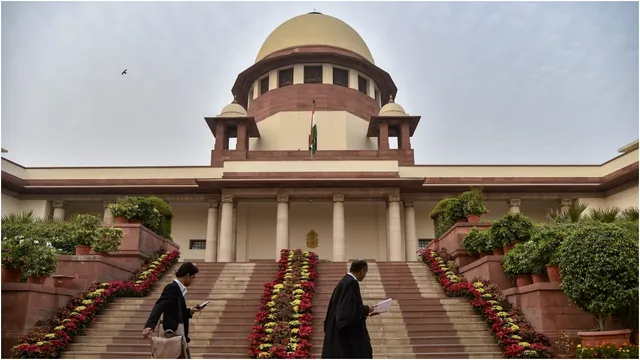- By Shubham Bajpai
- Thu, 21 Aug 2025 05:31 PM (IST)
- Source:JND
The Central government on Thursday firmly argued against the SC verdict setting a deadline for the President and Governors to decide on state bills. Arguing on behalf of the Centre, Solicitor General Tushar Mehta minced no words in highlighting that the apex court had struck down several attempts in the past to lay down the timelines for completion of trials.
He said that "separation of powers...must be a two-way street," citing NJAC, which was unanimously passed by the Parliament but was struck down by the top court.
On Thursday, the five-judge bench comprising CJI BR Gavai, Justices Surya Kant, Vikram Nath, P S Narasimha, and A S Chandurkar, was hearing the reference made by President DroupadiMurmu for the third day.
According to a report by Bar and Bench, CJI Gavai asked, "What if bills are pending for four years?... We appreciate the timeline argument... But consider a situation that the Governor is to grant assent but sits for four years... then what happens to the will of 2/3rd majority? What happens to the elected?"
To this, SG Mehta argued, "If someone approaches the president saying that the case is pending for 7 years.. in the trial court, and my max punishment is 7 years.. can the president acquit me .. ? For every solution, it is not adjudication by this court."
During the hearing, Justice Narsimha cited the Anti-Defection Law, which came from within the legislature to deal with turncoats after elections. He said, "See how the political executive came up with the 10th schedule and not the court."
To this, SG Mehta said, "Yes, for some things solution has to come from within. The moment an executive steps into the judicial domain, they are restricted. Rightly so. That's how NJAC was struck down, on the basis of separation of powers, and it has to be a two-way street."

